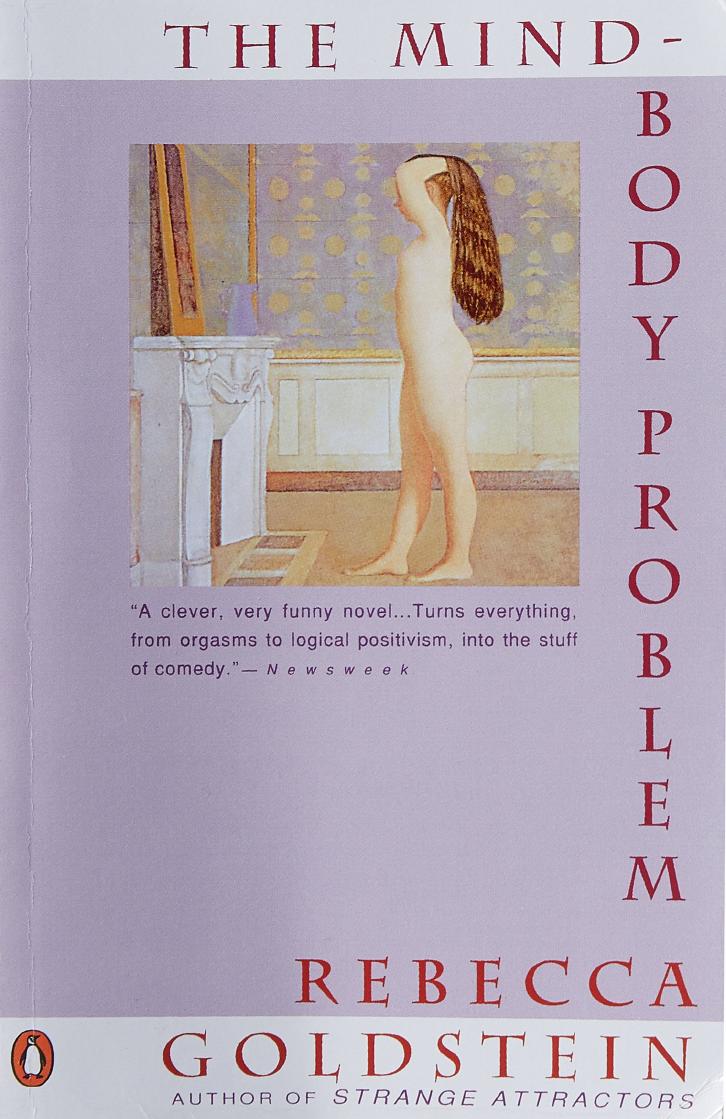The Mind-Body Problem by Rebecca Goldstein

Author:Rebecca Goldstein [Goldstein, Rebecca]
Language: eng
Format: epub, pdf
Tags: Fiction, Literary
ISBN: 978-1-938972-09-6
Publisher: Fancy Sisters Press
Published: 2014-07-21T16:00:00+00:00
I never had told Noam that I was only making a poor joke out there in front of Lahiere’s. And I suppose it wasn’t only a joke. I’ve always been obsessed with the mind-body problem. During those periods when I think of myself as a philosopher and those periods when I don’t, I never can get away from that problem that Schopenhauer called, quite wonderfully, the Weltknoten, the world-knot. That’s exactly what it is, bringing together in one inextricable clump strands that weave in and out of the entire fabric of reality, entangling each of us (certainly me).
And I’m in good company here. The mind-body problem was the obsession of most philosophers before this century’s crop discovered that it is, like all metaphysical questions, either meaningless or trivial. But I’ll never be convinced of that. It’s the essential problem of metaphysics, about both the world out there and the world in here. In fact, the dichotomy between the two worlds—the outer public place of bodies and the inner private one of minds—is exactly what it’s all about. Are both these realms real, and if so how do they fit together? Can one of them be absorbed into the other? The answer a philosopher gives determines the entire shape of his metaphysics. Idealists reduce in the direction of mind, materialists in the direction of body, and dualists heroically assert the separate and equal reality of both. One after another of the great philosophical systems have attempted to untie the world-knot, pulling out some threads but leaving others impossibly entangled. What is the world? What am I? This is the mind-body problem.
There is reality, or the world, consisting of all the things that are. Scientists are in the business of describing reality, as metaphysicians hope to be. Common sense, too, has its ontological commitments.
To describe reality one must say what things exist and what they are like. What is the common-sense view (one has to begin somewhere, and where else but with common sense)? Certainly that material bodies exist, their most important feature being their objective existence: they exist “out there,” independent of our observation of them. This typewriter doesn’t pop in and out of existence as I look at and away from it. (If it does, it’s not a material body.) It and its properties persist. And it and its properties are public. All of us can, in principle, know about the typewriter, both through observation (as we know its shape) and through science (as we know it is composed of atoms).
But in speaking of observation and knowledge we commit ourselves to beings who observe and know, to things with experiences, to conscious entities. And their inclusion is also a central part of the common-sense ontology. In fact, that there exists at the moment at least one such thing, namely, myself, seems an ontological truth impossible to deny (unlike all others). I can never falsely believe that I exist. The condition of this fact’s being believed at all is sufficient to ensure its truth, as Descartes observed in his Second Meditation.
Download
This site does not store any files on its server. We only index and link to content provided by other sites. Please contact the content providers to delete copyright contents if any and email us, we'll remove relevant links or contents immediately.
Red by Erica Spindler(12575)
Crooked Kingdom: Book 2 (Six of Crows) by Bardugo Leigh(12319)
Twisted Palace by Erin Watt(11155)
Mindhunter: Inside the FBI's Elite Serial Crime Unit by John E. Douglas & Mark Olshaker(9344)
Fangirl by Rainbow Rowell(9253)
Never let me go by Kazuo Ishiguro(8902)
All the Light We Cannot See: A Novel by Anthony Doerr(8497)
A Man Called Ove: A Novel by Fredrik Backman(8437)
The Lover by Duras Marguerite(7903)
Confessions of an Ugly Stepsister by Gregory Maguire(7889)
Little Fires Everywhere by Celeste Ng(7201)
The Vegetarian by Han Kang(6303)
To All the Boys I've Loved Before by Jenny Han(5851)
The Shadow Of The Wind by Carlos Ruiz Zafón(5693)
On the Yard (New York Review Books Classics) by Braly Malcolm(5525)
Keepsake: True North #2 by Sarina Bowen(5414)
Dancing After Hours by Andre Dubus(5280)
Ken Follett - World without end by Ken Follett(4734)
The Perks of Being a Wallflower by Stephen Chbosky(4649)
